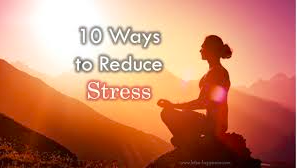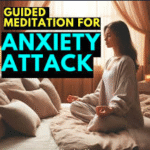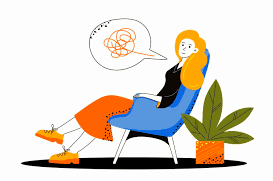10 Ways to Relieve Stress and Anxiety
Introduction
10 ways to relieve stress and anxiety: In today’s fast-paced world, stress and anxiety have become common struggles for people of all ages. Whether it’s due to work deadlines, financial pressures, or personal challenges, prolonged stress can harm both mental and physical health. Fortunately, there are effective techniques to reduce these feelings and restore balance.
This article explores 10 ways to relieve stress and anxiety, offering practical tips you can integrate into your daily routine. By combining healthy lifestyle habits, relaxation techniques, and mindfulness practices, you can manage stress more effectively and enjoy greater well-being.
Why Managing Stress and Anxiety Is Important
Before we dive into the 10 methods, it’s essential to understand why stress management matters. When left unchecked, stress and anxiety can lead to:
- Sleep problems
- Weakened immune system
- Digestive issues
- Heart disease and high blood pressure
- Depression and burnout
Managing stress is not about eliminating challenges from life—it’s about developing healthy coping mechanisms.
1. Practice Deep Breathing Exercises
One of the simplest yet most powerful ways to relieve stress and anxiety is through deep breathing.
How to do it:
- Sit or lie down in a comfortable position.
- Inhale deeply through your nose for 4 seconds.
- Hold your breath for 4 seconds.
- Exhale slowly through your mouth for 6–8 seconds.
- Repeat for 5–10 minutes.
Why it works: Deep breathing lowers cortisol (the stress hormone) and activates the body’s relaxation response.
2. Engage in Regular Physical Activity
Exercise is a natural stress reliever. Whether it’s walking, running, yoga, or dancing, physical activity boosts endorphins, which improve mood and reduce anxiety.
Tips:
- Aim for at least 30 minutes of activity most days.
- Choose activities you enjoy to stay consistent.
- Try outdoor workouts for an extra dose of vitamin D.
3. Try Mindfulness and Meditation
Mindfulness encourages staying present and focusing on the here and now instead of worrying about the past or future. Meditation, on the other hand, calms the mind and improves clarity.
Practices include:
- Guided meditation apps like Calm or Headspace
- Mindful eating (paying attention to food textures and flavors)
- Body scan meditation to release tension
4. Prioritize Quality Sleep
Poor sleep worsens stress and anxiety. Establishing healthy sleep habits can make a big difference.
Tips for better sleep:
- Maintain a consistent sleep schedule.
- Avoid screens an hour before bed.
- Create a relaxing bedtime routine (reading, stretching, herbal tea).
- Keep your bedroom cool, dark, and quiet.
5. Maintain a Balanced Diet
What you eat affects your mood and stress levels. Consuming too much sugar, caffeine, or processed food can trigger anxiety.
Stress-reducing foods include:
- Omega-3 rich foods (salmon, walnuts, flaxseeds)
- Leafy greens and whole grains
- Herbal teas like chamomile and green tea
- Dark chocolate in moderation
6. Connect with Loved Ones
Social support is vital for emotional well-being. Talking with friends or family provides comfort and perspective.
How to connect:
- Share your thoughts and feelings openly.
- Schedule regular catch-ups with loved ones.
- Join community groups or support networks if you feel isolated.
7. Practice Journaling
Writing down your thoughts is one of the most therapeutic ways to relieve stress and anxiety. Journaling helps you process emotions and identify patterns.
Tips:
- Write for at least 10 minutes daily.
- Note down things you’re grateful for.
- Track your moods and stress triggers.
8. Limit Caffeine and Alcohol
While coffee and alcohol may seem like stress relievers, they often worsen anxiety symptoms.
Alternatives:
- Switch to herbal teas or decaf options.
- Stay hydrated with water throughout the day.
- Choose natural energy boosters like fruits and nuts.
9. Practice Relaxation Techniques
Relaxation strategies calm the mind and body, reducing tension.
Effective techniques include:
- Progressive muscle relaxation (tensing and releasing muscles)
- Aromatherapy with lavender or eucalyptus essential oils
- Gentle yoga stretches before bed
- Listening to calming music or nature sounds
10. Seek Professional Help When Needed
If stress and anxiety persist despite lifestyle changes, professional treatment may be necessary.
Options include:
- Therapists or counselors: Provide coping strategies through talk therapy.
- Cognitive Behavioral Therapy (CBT): Helps reframe negative thought patterns.
- Psychiatrists: May prescribe medication in severe cases.
Seeking help is a sign of strength, not weakness.
Additional Quick Tips to Relieve Stress and Anxiety

- Take short breaks during work or study.
- Spend time in nature to reset your mind.
- Practice gratitude daily.
- Reduce screen time and social media usage.
- Develop hobbies that bring joy, like painting, gardening, or cooking.
Putting It All Together: A Daily Stress-Relief Routine
Here’s an example of how you can incorporate these 10 ways to relieve stress and anxiety into a day:
- Morning: 10 minutes of meditation and a balanced breakfast
- Afternoon: 20–30 minutes of physical activity + deep breathing break
- Evening: Journaling, connecting with a loved one, and herbal tea
- Night: Relaxing stretches, screen-free time, and a consistent sleep schedule
Consistency is key—small daily habits lead to long-term resilience.
Conclusion
Stress and anxiety are part of life, but they don’t have to control your well-being. By practicing deep breathing, exercising regularly, eating a balanced diet, and seeking support when needed, you can manage stress effectively.
These 10 ways to relieve stress and anxiety are simple yet powerful strategies that can be tailored to fit your lifestyle. With patience and consistency, you’ll notice improvements in your mental and physical health.
FAQs About 10 Ways to Relieve Stress and Anxiety
1. What are the quickest ways to relieve stress and anxiety?
Deep breathing, short walks, and listening to calming music can bring quick relief in minutes.
2. Can exercise really reduce anxiety?
Yes. Exercise releases endorphins, lowers stress hormones, and improves overall mood.
3. How does journaling help with stress?
Journaling provides an outlet for emotions, helps identify triggers, and fosters self-reflection.
4. When should I seek professional help for anxiety?
If anxiety interferes with daily activities, sleep, or relationships, it’s important to consult a mental health professional.
5. Is meditation effective for stress relief?
Absolutely. Meditation helps calm the mind, increases focus, and reduces anxiety when practiced regularly.





